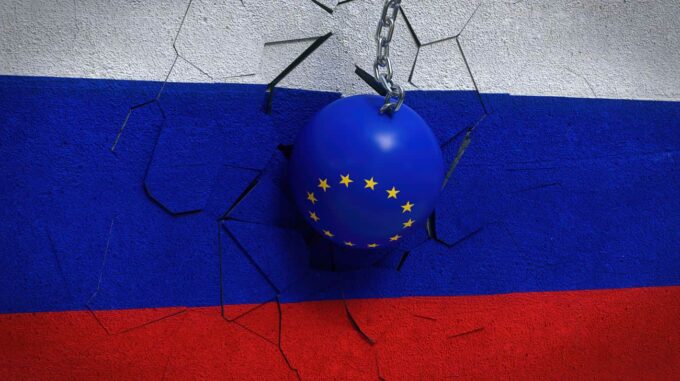The European Union is actively preparing the 17th sanctions package, aimed against Russia in response to its aggressive actions in Ukraine and violations of international norms

According to open sources, including Reuters agency, European diplomats and analysts are already discussing key elements of future restrictive measures, particularly those related to the use of chemical weapons, as well as broader aspects of countering hybrid threats. On Wednesday, representatives of the European Union began vigorous discussions on the 17th sanctions package, which, according to preliminary plans, will focus not only on Russia’s military machinery but also on the so-called "shadow fleet" of Moscow — structures that support military and logistical operations beyond regular maritime routes and control this fleet under the cover of economic and commercial interests. As part of these discussions, there is active deliberation over a specific list of 15 legal and physical persons who, according to suspicions of European intelligence agencies and international investigators, are involved in the use of chemical weapons in Ukraine. According to reports from Reuters, among the potential new restrictions is the inclusion of 25 additional individuals in the sanctions list who are linked to human rights violations or crimes related to Russian aggression. Also among possible targets is the Russian oil production company "Surgutneftegas," which the United States already included in sanctions lists in January of this year as part of a global campaign to restrict the Russian energy sector. The European Union also proposes to include this company in the sanctions list — thus planning to strengthen trade restrictions and complicate Russia’s ability to fund military operations through oil exports. According to previously published information, preparations for the 17th sanctions package are being carried out in close coordination with the United States. The main goal is coordinated action to restrict Russian resources and complicate its military and economic capabilities. It is expected that EU foreign ministers will approve this package during the scheduled European Union Council meeting in May 2025. French Foreign Minister Jean-Yves Le Drian emphasized the importance of such synchronization of actions with the United States, noting that European countries aim to formulate a unified strong position and implement new sanctions in a timely manner to intensify pressure on Moscow. This step is part of the broader strategic course of the European Union to support Ukraine, counter Russian aggression, and prevent escalation of hybrid attacks, including the use of chemical weapons in the conflict. Thus, the process of forming the new sanctions package continues, and its implementation should become another step in international efforts to limit Russian influence and potential use of weapons of mass destruction in Ukraine. It is clear that the European Union strives to act in coordination with transatlantic partners and ensure that measures align with current challenges — to maintain unity and strengthen the effectiveness of its policy towards Moscow.

